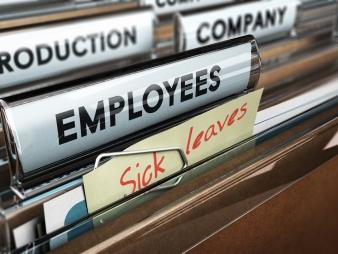UPDATED April 2, 2020
On March 22, 2020, the Ohio Department of Health issued a Stay at Home Order, ordering the closure of non-essential businesses in Ohio for a two-week period starting at 11:59 p.m. Monday, March 23.
Businesses that are required by the Stay at Home Order to shut down have been wondering if the order will trigger their obligation to provide affected employees with paid leave under the new Families First Coronavirus Response Act (Act).
The Act—which covers all employers having fewer than 500 employees and is scheduled to go into effect on April 1, 2020—provides that full-time and part-time employees are eligible for up to two weeks of emergency paid sick leave (pro-rated for part-time employees). The sick leave is applicable when the employee cannot work or telework because of one of the following:
- The employee is subject to a government quarantine or isolation order;
- The employee has been advised by a health care provider to self-quarantine;
- The employee is experiencing medical symptoms of coronavirus and is seeking a medical diagnosis;
- The employee is caring for a person subject to the government quarantine or isolation order or who has been advised by a health care provider to self-quarantine;
- The employee is caring for a child of the employee whose school or daycare is closed due to coronavirus;
- The employee is experiencing any other substantially similar condition specified by the United States Department of Health and Human Services as qualifying for emergency paid sick leave.
Questions had been raised as to whether the Ohio Stay at Home Order is a “government quarantine or isolation order” which, if extended beyond April 1, 2020 (when the Act goes into effect), will (a) trigger an employer’s obligations to provide up to two weeks of paid leave to the employees under the Act, and (b) entitle an employer to government reimbursement via a tax credit for such paid leave.
The DOL recently issued guidance and regulations answering this question, and the answer to the foregoing question is, although the Stay at Home Order is considered a quarantine or isolation order for purposes of the paid sick leave provisions of the Act, an employee is not entitled to paid sick leave if his/her workplace is closed due to the Stay at Home Order or due to lack of business. According to the guidance, which can be found at https://www.dol.gov/agencies/whd/pandemic/ffcra-questions, and the new regulations, which can be found at https://www.dol.gov/sites/dolgov/files/WHD/Pandemic/FFCRA.pdf, if an employer closes its worksite for lack of business or because it is required to close pursuant to a Federal, State, or local directive, employees who do not have work available to them due to the shut-down are not eligible for paid leave under the Act. This is true whether the worksite is closed before or after April 1 (the effective date of the Act).
This means that if an employer closes (or already closed) its worksite in response to the Stay-at-Home Order, employees affected by the shut-down are not entitled to paid leave under the Act. If the employer provides paid leave to employees affected by the shut-down, the employer will not be entitled a government reimbursement via a tax credit for such paid leave.
Any paid leave an employer might already have given to employees affected by the shut-down cannot be counted towards the employees’ entitlement to paid leave under the Act. If, for example, an employer gave employees two weeks of paid leave in response to a plant shut-down, if the plant re-opens on April 6 and an eligible employee needs to take sick leave on April 7 because the employee is experiencing symptoms of COVID-19 and is seeking a medical diagnosis, that employee is entitled to the full 80 hours of paid sick leave under the Act.
Please do not hesitate to contact us with any questions or concerns.
Tagged In:Families First Coronavirus Response ActPaid Sick LeaveStay at Home




